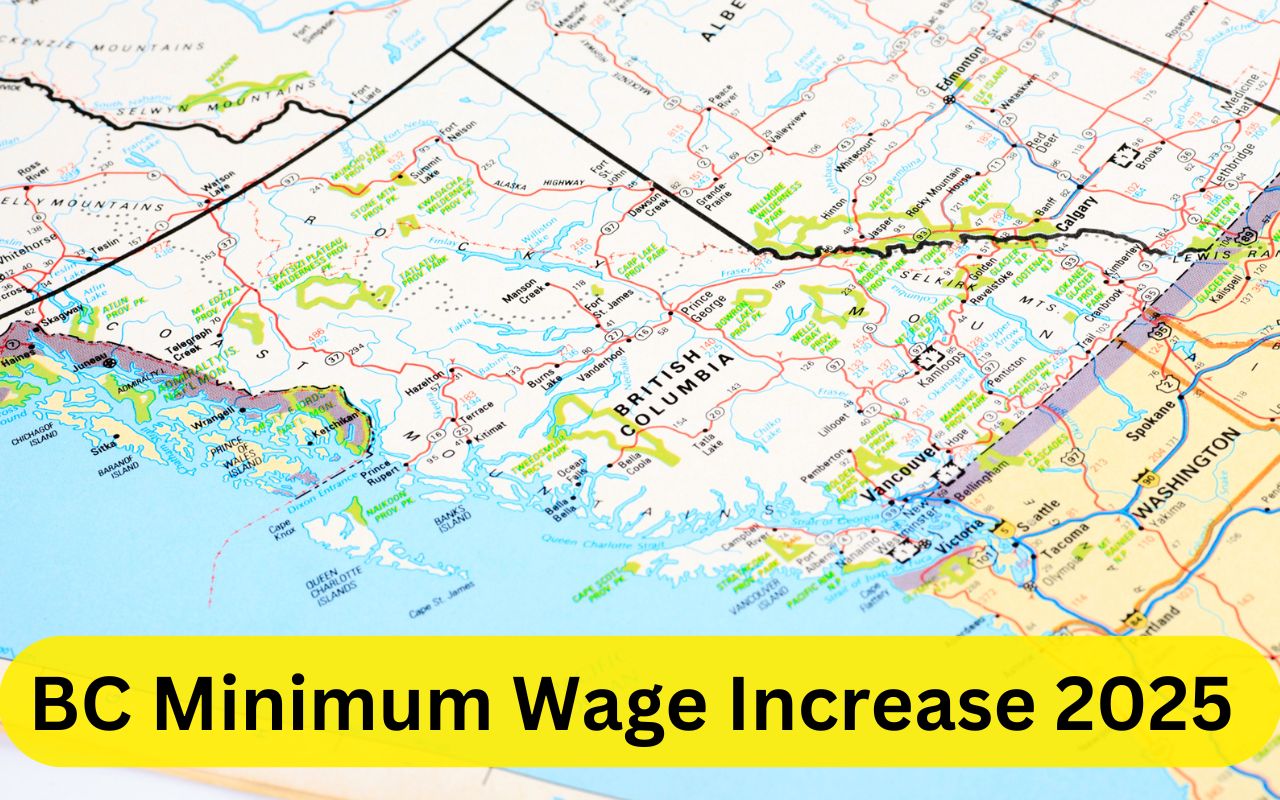The minimum wage is a crucial part of labor laws, ensuring fair pay for workers. In British Columbia (BC), Canada’s cost of living has been rising, making wage updates essential. The 2025 BC minimum wage increase aims to provide relief for many workers.
BC Minimum Wage Increase 2025 Overview
The minimum wage is the lowest amount employers must pay per hour. BC adjusts this rate to align with inflation and living costs.
| Year | Minimum Wage | Increase Rate |
| 2024 | $17.40 | CPI-based increase |
| 2025 | Estimated $18.00+ | Pending confirmation |
BC’s minimum wage was set at $17.40 per hour as of June 1, 2024. The 2025 increase is expected to align with inflation, potentially reaching around $18.00 per hour.
Why the 2025 BC Minimum Wage Increase Matters
With rising costs for housing, food, and transportation, many workers struggle to make ends meet. The wage increase aims to:
- Provide financial relief for low-income workers
- Support students and single-income families
- Maintain workers’ purchasing power amid inflation

How Much Will the Minimum Wage Increase in 2025?
While the exact amount isn’t finalized, BC typically adjusts wages based on inflation rates. Economists predict a rise between 3–5%, bringing the hourly wage to around $18.00–$18.25.
Impact on Workers and Businesses
Workers Benefit From Higher Wages
- Increased earnings for low-wage workers
- Reduced financial stress for single-income families
- Better financial security for students and part-time workers
Challenges for Businesses
- Higher payroll expenses
- Potential price increases to offset labor costs
- Possible reduction in employee hours to manage expenses
To help businesses, BC offers support programs to adapt to wage increases.
Economic Effects of a Minimum Wage Hike
Higher wages generally boost consumer spending, benefiting local businesses and the economy. However, concerns include:
- Potential job cuts in small businesses
- Increased costs for goods and services
- Inflationary pressures if wage hikes are excessive
Studies show that moderate wage increases have minimal negative effects on inflation and employment.
BC Minimum Wage Compared to Other Provinces
| Province | Minimum Wage (2024) |
| Alberta | $15.00 |
| BC | $17.40 |
| Ontario | $17.20 (Oct 2024) |
| Quebec | $15.75 (May 2024) |
| Yukon | $17.59 |
| Nunavut | $19.00 |
BC has one of the highest minimum wages in Canada, reflecting its high cost of living.
Preparing for the Change
Workers should check their pay rates and understand how the increase affects them. Employers may need to adjust budgets and plan for wage-related costs.
| Homepage | uhmychart.org |
Final Thoughts
The 2025 BC minimum wage increase is a step toward fair pay and economic stability. While businesses face challenges, higher wages support workers and stimulate the economy. Keeping wages aligned with inflation ensures BC remains a livable place for all.






